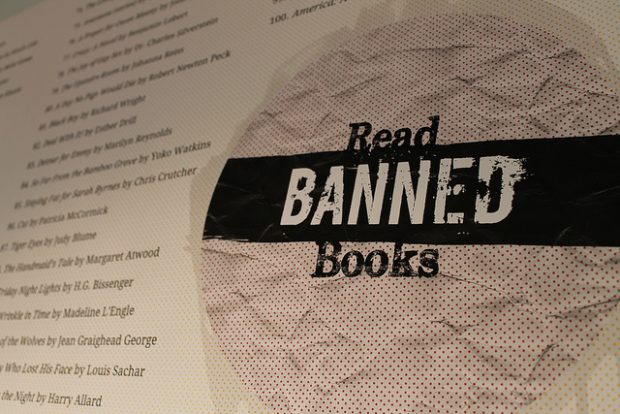28 Sep 2016 | mobile, News and features
Monday marked the beginning of Banned Books Week. To celebrate the freedom to read, Index on Censorship staff explore some of their favourite, and some of the most important, banned or challenged books.
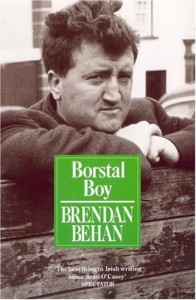
Ryan McChrystal – Borstal Boy by Brendan Behan
Brendan Behan’s autobiographical work Borstal Boy was banned in Ireland in December 1958. His London publisher, Hutchinson’s, had sent a batch of copies to Dublin to be sold at a Christmas market but they were confiscated at the port. Behan was outraged that a group of “country yobs” could prevent the distribution of his book.
Borstal Boy is the story of how a 16-year-old Behan landed himself in a series of institutions for young offenders in Kent, having been charged with membership of the IRA, and what happened to him after that.
Although Ireland’s Censorship of Publications Board never explained why the book was banned, it probably had something to do with its depictions of adolescents talking about sex and its pillorying of Irish social attitudes, republicanism and the Catholic Church. The board is, after all, known for its stringent adherence to Roman Catholic values.
When Behan later learned that the book was also banned in Australia and New Zealand, he took solace in song and humour as he went around Dublin singing:
“My name is Brendan Behan, I’m the latest of the banned
Although we’re small in numbers we’re the best banned in the land,
We’re read at wakes and weddin’s and in every parish hall,
And under library counters sure you’ll have no trouble at all.”
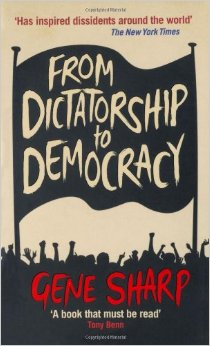
David Heinemann – From Dictatorship to Democracy by Gene Sharp
Running the Freedom of Expression Awards’ Fellowship and helping brave people who are often fighting totalitarian regimes can sometimes feel like an uphill battle. How can one person or organisation ever hope to defeat an entire dictatorship?
They can’t, of course, but Gene Sharp’s little book reminds me that “the deliberate, non-violent disintegration of dictatorships” is possible when people work together in certain ways. Part handbook, part political pamphlet, it’s an invaluable toolbox for any serious democratic activist. Its potency was illustrated last year when a group of young Angolans were imprisoned simply for trying to get together and discuss it at a book club.
The fact that I could read it on my commute home reminded me never to take my freedoms for granted.
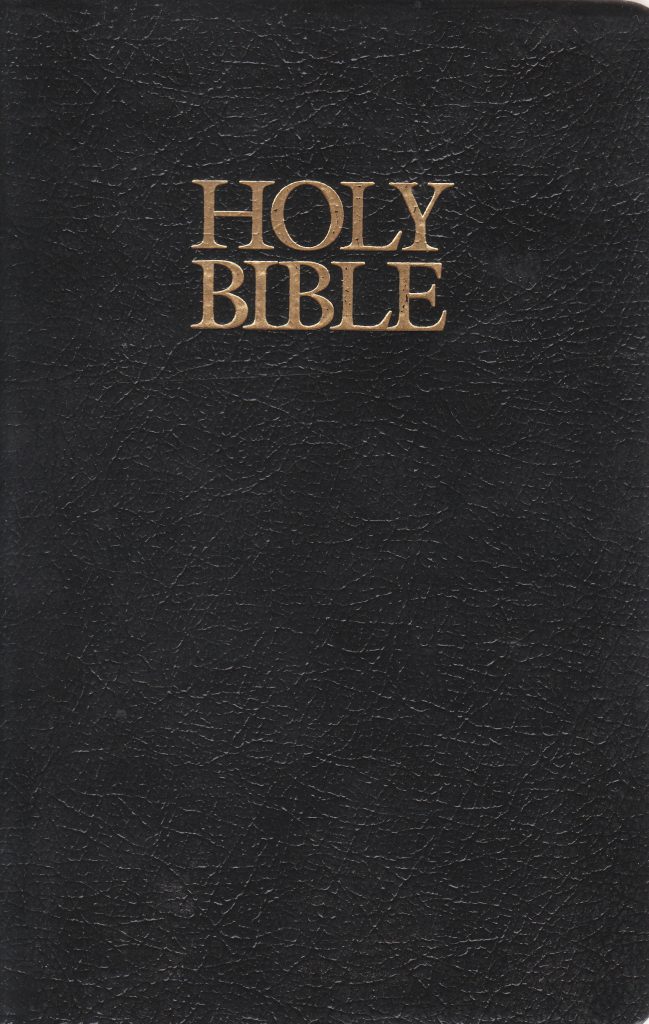
Vicky Baker – The Bible
The Bible is not an obvious choice for me as I’m an atheist, but loosely picking up on that misattributed Voltaire quote, I would defend anyone’s right to read it – or indeed any other religious book.
Pope Francis has called The Bible “an extremely dangerous book”. Owning it or reading it can get you still get you imprisoned or killed in certain parts of the world. This is the sort of book banning that we should all be extremely worried about, whatever your religion.
These days I don’t even have a copy in my house, but its stories formed part of my childhood. When I grew up I learnt that my hometown, Amersham in Buckinghamshire, also had an important connection to censorship of The Bible. In the 16th century a group of local Lollards were burned at the stake for wanting to translate the book from Latin to English; some of their children were forced to light the pyre.
Known as the Amersham Martyrs, they have since been honoured in a memorial stone, costumed walking tours, and through occasional community plays about their lives, staged in a local church. (Imagine if the bishop who sentenced them saw this today.)
Sadly, we live in a world where censorship of the Bible is not ancient history. In 2014, an American man was sent to labour camp in North Korea for leaving a Bible in a restaurant’s bathroom when visiting as a tourist. It was deemed a crazy act – and, indeed, the move also endangered his local tour guides – but it is outrageous that simply leaving a book behind, so readers can choose to pick it up or not, can still lead to such punishments.

David Sewell – The Things They Carried by Tim O’Brien
One of those cases in the USA where the pressure to ban comes not from the authorities, but from citizens wanting it pulled from libraries or schools. Complaints were made about its sweary language and its graphic depictions of violence and death. But there again it’s about a grunt’s eye view of the Vietnam war, so go figure.
Only this is really a remarkable work of fiction, which is highly literary in its narrative form. It uses stories to try and construct the extreme experience of war, but also uses war to explore the drive to create stories for ourselves. Language is used to defang terror on the battlefield, stories are invented (and embellished through the re-telling) to keep dead comrades alive, because if they are allowed to die, then it brings death one step closer to the surviving soldiers.
A fascinating book that tries to put words to the unsayable and unspeakable, and its would-be censors are attempting to make it a different kind of unspeakable and unsayable.
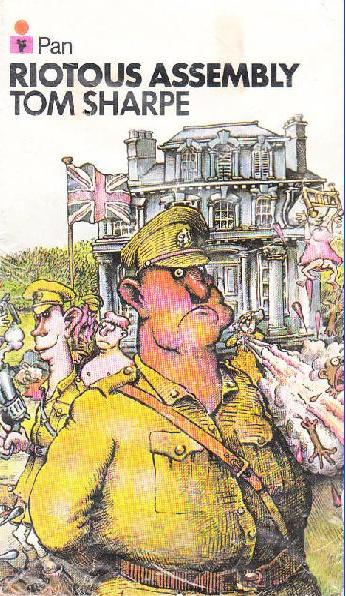
Kieran Etoria-King – Riotous Assembly by Tom Sharpe
One of the most enduring, darkly funny things I’ve ever read was the opening chapter of Tom Sharpe’s 1971 novel Riotous Assembly, in which a South African police chief argues with an old white woman who shot her black chef in the garden of her stately home. As two deputies collect up the obliterated corpse of the man she killed with a four-barrelled elephant gun, Miss Hazelstone, who graphically describes her illicit love affair with the chef, demands to be arrested for murder, while a disgusted Kommandant van Heerden insists that the killing of a black person is not murder. Meanwhile, the entire police force of the fictional town of Piemburg, operating under mistaken intelligence, are engaged in a fierce and escalating firefight at the gate, unaware that they are actually shooting at each other from behind cover.
Sharpe had lived in South Africa from 1951 to 1961 before he was deported over a play he staged that criticised the government, so he had an intimate knowledge of the country and Riotous Assembly, a hilarious send-up of the South African police force, is driven as much by real venom and contempt for the Apartheid system as it is by vulgar humour. Of course, that system wasn’t going to tolerate such mockery and the book was banned in South Africa as well as Zimbabwe.
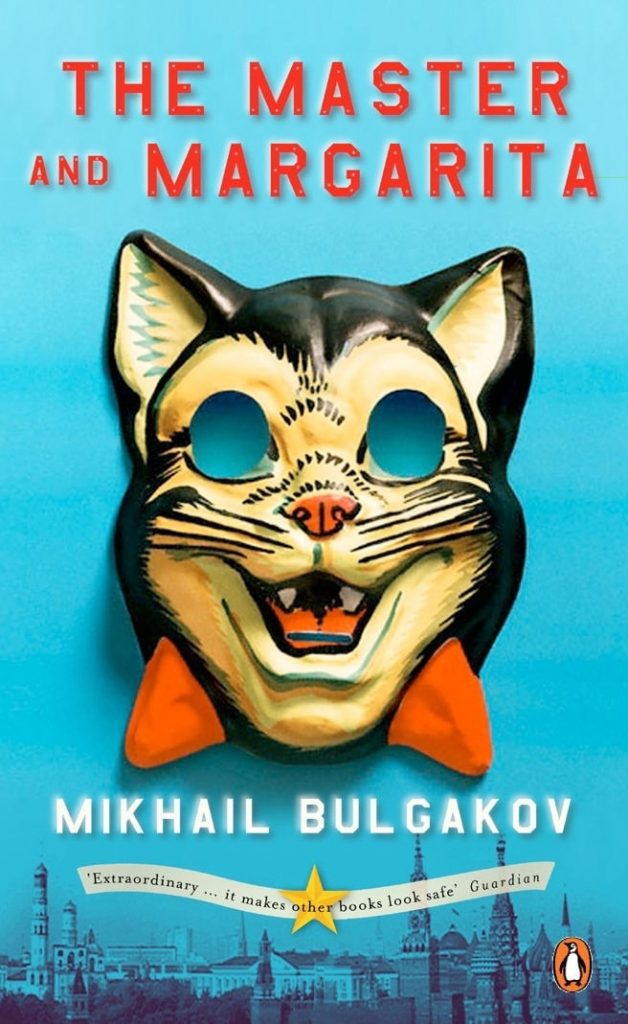
Helen Galliano – The Master and Margarita by Mikhail Bulgakov
I first came across The Master and Margarita – considered to be one of the finest novels to come out of the Soviet Union – as a performance student at Goldsmiths and a lover of magical realism. I immediately fell into Bulgakov’s wild and dangerous world of talking cats, decapitations, magic shows, Satan’s midnight ball and plenty of vodka. I was hooked, reading it multiple times throughout my third year and even created a performance reimagining Margarita’s transformation into a witch.
The forward to the 1997 translation of the novel reads: “Mikhail Bulgakov worked on this luminous book throughout one of the darkest decades of the century. His last revisions were dictated to his wife a few weeks before his death in 1940 at the age of forty-nine. For him, there was never any question of publishing the novel. The mere existence of the manuscript, had it come to the knowledge of Stalin’s police, would almost certainly have led to the permanent disappearance of its author.”
Faced with persecution, Bulgakov burned the first manuscript of The Master and Margarita, only to re-write it later from memory. It was eventually published nearly three decades after his death and since then “manuscripts don’t burn”, a famous line from the book, has come to symbolise the power and determination of human creativity against oppression.
Great literature and great ideas will always survive.
What’s it like to be an author of a banned or challenged book? How can librarians support authors who find themselves in this situation? To mark Banned Books Week, Vicky Baker, deputy editor of Index on Censorship magazine, will chair an online discussion with three authors on 29 September, followed by a Q&A. It is free to join, although attendees must register in advance.
27 Sep 2016 | Bahrain, Campaigns, Campaigns -- Featured
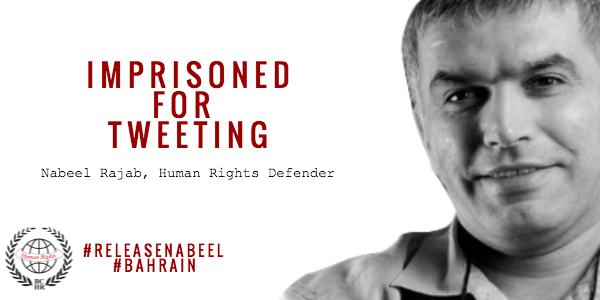
On Sunday 25 September Nabeel Rajab was transferred from the West Riffa Police Station to solitary confinement in the East Riffa Police Station ahead of his sentencing next week.
“It’s been over a hundred days since Nabeel was arrested and charged and am very worried about his well-being. He has been treated harshly and sent back to a place where he suffered complete isolation in facilities not fit for purpose,” Sumaya Rajab, Nabeel’s wife, said.
The last time the 2012 Index on Censorship award-winning Rajab was held in East Riffa, he required urgent medical care after two weeks of isolation in deplorable conditions. The president of the Bahrain Center for Human Rights faces up to 15 years in prison on 6 October on three charges related to his posts on social media.
Rajab is currently being held in a filthy cell. He has not been given a reason for his transfer, and when he tried to ask a police officer, he was screamed at and insulted. When his family delivered clothes and toiletries to the station, officers dirtied them with water and soil before giving them to Rajab. The police officers refused the family’s attempt to give Rajab a radio.
Rajab’s continued detention in police stations is extraordinary. Male detainees are normally only held in police custody until formal charges are brought against them; they are then transferred to the Dry Dock Detention Centre for pre-trial detention. Police stations do not have the facilities for long-term detention. Rajab, who was charged a day after his arrest, has requested multiple times for his rightful transfer to Dry Dock, as has his lawyer. These requests have all been denied.
Rajab has been held in pre-trial detention since his 13 June 2016 arrest. He was initially held in East Riffa. After 15 days in solitary confinement – which the UN’s top expert judges may amount to torture – he required urgent medical attention. Rajab was rushed to the Bahrain Defence Force hospital with breathing difficulties, an irregular heartbeat and a weak immune system.
Sayed Ahmed Alwadaei, Director of Advocacy, Bahrain Institute for Rights and Democracy: “Nabeel Rajab’s prosecution is part of the Bahraini monarchy’s expansion of authoritarianism and his imprisonment emboldens dictatorship. The US and UK need to step up and criticise this ally, which they have supported with arms and assistance despite the crushing of peaceful critics.”
After being released by the hospital, and police transferred him to the West Riffa police station. His treatment improved at that facility: Rajab was no longer kept strictly in solitude and allowed more regular phone calls.
His family are concerned that his health will decline again and think that this latest transfer suggests a harsh prison sentence will be handed down in October.
Rajab faces multiple charges of “insulting a statutory body”, “insulting a neighboring country”, and “disseminating false rumors in time of war”. These are in relation to remarks he tweeted and retweeted on Twitter in 2015 about torture at Bahrain’s Jau prison and the humanitarian crisis caused by the Saudi-led war in Yemen.
Since 2011, Rajab has faced ongoing judicial harassment and prison sentences for his vocal activism. He was placed on a travel ban in 2014 and has been unable to leave the country.
More about Nabeel Rajab:
Who is Nabeel Rajab?
Prince Charles to visit Bahrain: Here are some things he should consider
Bahrain: Prominent rights activist charged for New York Times letter
Index award winners and judges call for release of Bahraini campaigner
27 Sep 2016 | Awards, Fellowship, Fellowship 2016, Middle East and North Africa, News and features, Syria
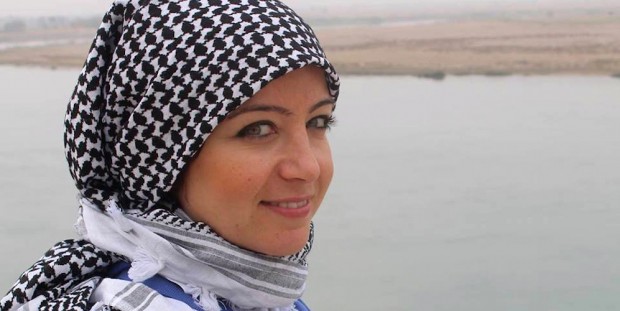
This week, UN officials described the Syrian regime’s offensive against the besieged city of Aleppo as “barbaric”. Following the collapse of a short-lived ceasefire, Syrian forces again began bombing Aleppo on Sunday, a continuation of the “unrelenting onslaught of cruelty”.
Aleppo is the former home of Zaina Erhaim, activist, journalist and winner of the 2016 Index on Censorship award for journalism for her work training citizen journalists to report on the conflict within the city.
|
Zaina Erhaim is the 2016 Index on Censorship Freedom of Expression Journalism Award-winner and fellow. A Syrian native who was studying journalism in London when war broke out in Syria in 2013, Erhaim decided to return permanently to report and train citizen journalists in the war-ravaged country. Read more about Erhaim’s work.
|
|
The battle for Aleppo has been raging since 2012, the same year Erhaim’s husband, the activist Mahmoud Rashwani, was arrested and tortured by the Syrian regime for participating in peaceful protests.
Writing on 11 August 2016 Erhaim – who now lives in Turkey with the couple’s seven-month-old daughter – said: “Among the estimated 300,000 to 400,000 people living on Aleppo’s eastside, Mahmoud hadn’t had any vegetables or fruit for the past month.”
She added that shortages of food – from fresh produce and canned food, to eggs, flour and baby milk – along with a lack of fuel have have left the people of Aleppo increasingly vulnerable.
Speaking to Index on Censorship, Erhaim said she was “incredibly proud” about her husband’s “brave” work searching for survivors among the rubble of bomb out buildings in Aleppo alongside other volunteers.
On 15 August, it was Rashwani’s neighbour’s home which was left in ruins. The neighbour – a journalist – along with his pregnant wife, were killed, while Rashwani escaped with a knee injury, Erhaim told Index.
Rashwani’s home, which he shared with Erhaim before she left the city, was also damaged.
Rashwani travels between Syria and Turkey to be with his family, but the journey has become increasingly difficult as the war rages on, Erhaim said.
Erhaim herself faced difficulty with a border this week. Travelling from Istanbul on 22 September to attend an event organised by Index on Censorship, border officials at Heathrow airport held the activist and her child for an hour before confiscating her passport after it was reported by the Syrian authorities as stolen. She was told that her passport would have to be returned to the Syrian government.
Erhaim was able to enter the UK on an old passport. However, this passport is now full, making future travel plans and visa applications potentially impossible.
Now back in Turkey, she will continue to work on projects with the Institute for War and Peace Reporting, she told Index. She is in the process of selecting five activists for a filmmaking project and has just completed hostile environments, first aid and digital security training with a number of journalists – essential skills for anyone reporting from Syria.
Erhaim will also continue to work on the Women’s Blog on The Damascus Bureau, which has just received a book deal from a French publisher. “The first edition will be in French and will be followed by editions in Arabic and English,” she told Index.
Speaking ahead of the Index event on women who report from war zones, Erhaim told Index: “The voices of women are very important because they are telling what is happening behind the frontline. While the major concern for most of the men in these situations is the actual conflict, women also think about education, health systems, clinics, social traditions, the changes in wedding styles – they are reporting on life.”
Nominations are now open for 2017 Index on Censorship Freedom of Expression Awards and will remain open until 11 October. You can make yours here.
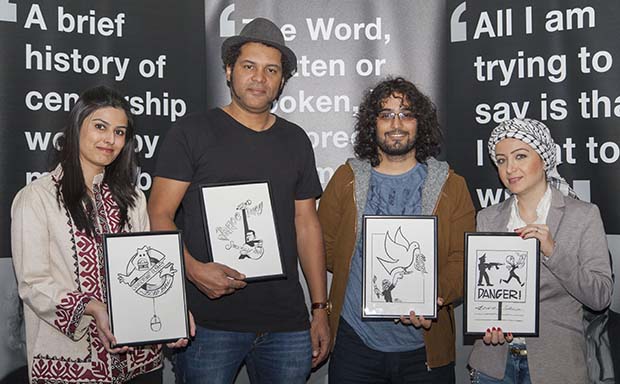
Winners of the 2016 Freedom of Expression Awards: from left, Farieha Aziz of Bolo Bhi (campaigning), Serge Bambara — aka “Smockey” (Music in Exile), Murad Subay (arts), Zaina Erhaim (journalism). GreatFire (digital activism), not pictured, is an anonymous collective. Photo: Sean Gallagher for Index on Censorship
More about Zaina Erhaim
Index condemns UK’s seizure of award winner’s passport
Women on the front line: Zaina Erhaim and Kate Adie on the challenges of war reporting
Zaina Erhaim: “I want to give this award to the Syrians who are being terrorised”
#IndexAwards2016: Zaina Erhaim trains Syrian women to report on the war
26 Sep 2016 | Europe and Central Asia, Events, Norway
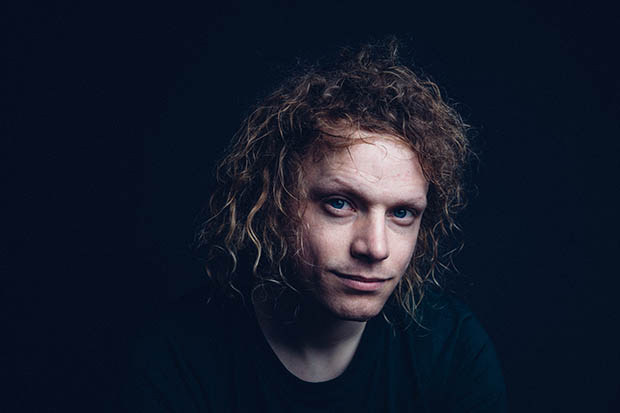
To mark the release of Norwegian musician Moddi’s new album, Unsongs, Index on Censorship is proud to announce a special series of appearances by currently banned voices from around the world.
Moddi will hand over the stage at three of the biggest gigs on his current European tour to unleash the power of free expression, replacing the support band with the genuinely banned.
In Amsterdam on 1 October, Maryam Al-Khawaja will share her and her family’s story of imprisonment and exile in the struggle for democracy in Bahrain. In London on 3 October, Vanessa Berhe will speak about life in the prison state of Eritrea and her campaign One Day Seyoum fighting to free her journalist uncle Seyoum Tsehaye who has been in jail for 15 years. In Berlin on 6 October, Raqqa Is Being Slaughtered Silently will tell how the Syrian civil war has destroyed the free expression of a generation. Co-founder Abdalaziz Alhamza will share the story of how and why he co-founded it inside IS-controlled territory.
“Unsongs is a remarkable collection of songs that have, at one stage, been banned, censored or silenced. The attempts to suppress them were as mild as an airplay ban and as brutal as murder. With great sensitivity and imagination, Norwegian singer-songwriter Moddi has given them new life and created a moving and eye-opening album. Unsongs simultaneously celebrates the censored and exposes the censors.” – Dorian Lynskey
Amsterdam, Jeruzalemkerk, Saturday 1 October, 8:30pm
The Banned: Maryam Al-Khawaja (Bahrain)
Tickets
London, St. Giles-In-The-Fields, Monday 3 October, 8pm
The Banned: Vanessa Berhe (Eritrea)
Tickets
Berlin, Silent Green, Thursday 6th October, 8pm
The Banned: Raqqa Is Being Slaughtered Silently (Syria)
Tickets
The series will be launched with a live Twitter chat with Moddi and Index on Censorship on Thursday 29 September at 3pm. Ask Moddi a question using the hashtag #WithTheBanned.
